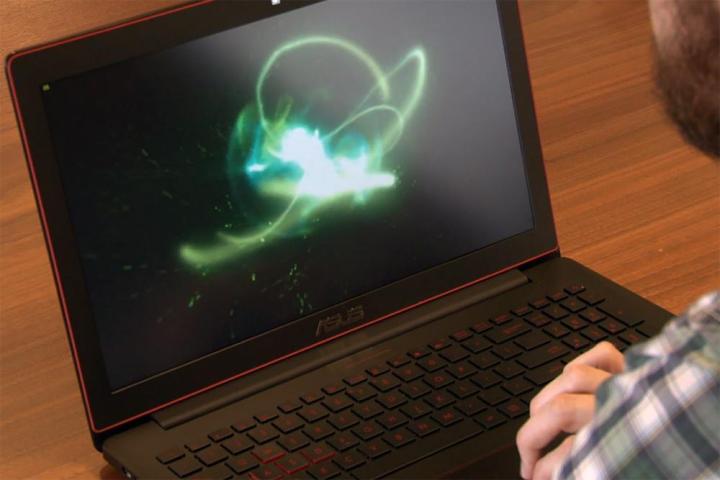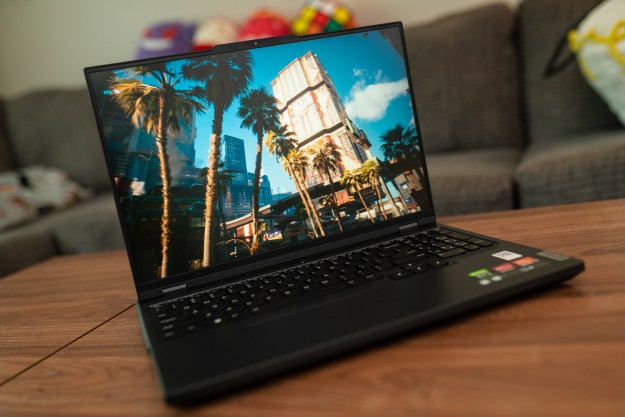
Asked by theologians and parents at Christmas alike, the battle between these two types of gaming machines is one that continues to rage to this day. Of course, pretty much everyone knows by this point that desktops have long since won the performance prize, but is there still an argument for picking up a laptop instead?
The Difference
First, the most obvious point. A laptop will never be as powerful as a cost-equivalent desktop. Period.
Because of the size difference, desktops will always have more space to stretch out, and more room to let their components breathe, which inherently means more power and more flexibility. Laptops are constrained to the tenets of portability, so no matter how badly you might want a GTX 980M to be as competent as a regular old GTX 980, the laws of thermodynamics are inevitably going to get in the way.
That said, thanks to the efforts of some very creative engineering solutions, the gap between gaming desktops and their mobile counterparts is growing smaller by the day.
GPU Performance
At the top end of the scale, newer chips like those found in the 980M are only around 25 percent less powerful than their full-sized inspirations. Laptops have come a long way in this department, chiefly due to Nvidia’s dedication to making them a viable option for gamers who want to play most games at almost the highest detail, and are secure enough in themselves to be happy enough with that capability on its own.
However, if you’ve been paying attention to our Kill All Pixels column, you’d know that the 4K gaming revolution is just around the corner (if not already here), and
)
The recently reviewed Asus ROG G501 attempted to close this gap by packing a 4K display in its loadout, but unfortunately the included 960M wasn’t anywhere near up to the task of
The end result of all this is that unequivocally, even with the wind of Maxwell at its back, mobile GPUs simply can’t keep up with their desktop brethren. At least not yet.
CPU Performance
Though the bridge between CPU performance on a laptop vs. a desktop is smaller than what you’d find in the graphics department, even here there’s still a noticeable difference. What you get in a laptop is generally toned down in key areas to account for the lack of cooling equipment such as fans or liquid radiators, and the results tell the rest of the story.
According to our test of Velocity Micro’s latest micro-tower, the Z40’s overclocked i7-4790k tacked on a massive score of 16,938 in our multi-core Geekbench run, while the G501 and its i7-4720HQ only mustered about three-fourths of that, at 12,230 in the same category.

Both are top-of-the-line contenders in their respective categories, but also cost just about the same as well. For the amount of money you spend you take a serious hit in overall performance, just for the benefit of being able to boot up Battlefield somewhere other than home base.
For gaming, though, the hit doesn’t matter. Games tend to be held back by graphics performance rather than the processor, and any mobile Intel quad sold today is quick enough to let a mobile GPU perform its best.
Upgrade-ability
We won’t spend too much time on this section, because the fact of the matter is if you’re just looking to drop a marginal amount on a machine today with plans to upgrade it later, desktops are the only way to go.
Sure, some laptops have removable hard drives that can be swapped out (while others make things a bit more difficult), but outside of that or the RAM, you’re pretty much stuck with what you get the day of purchase until you buy a whole new system. Even if you can swap out the GPU, it’ll be so expensive that it won’t make sense.
Desktops on the other hand are just Legos for grownups, with a nearly endless combination of motherboards, video cards, RAM configurations, hard drive bays, power supplies, and cases that can be mixed and matched depending on your gaming needs and relative budget.
Want to play Battlefield in 4K, but your one-year old desktop isn’t up to snuff? No problem, just pop in a new graphics card, and you’re good to go. Experiencing some frame lag while editing a genome sequence in class? There’s a new processor for that.
Value
And this is where value comes into play. If you’re paying 25 percent more for a gaming laptop and it’s a quarter less powerful, in theory you could price out a desktop that’s 50 percent more beastly for the exact same cost as its lap-based counterpart.
However, when you account for the fact that technically you’re getting a monitor, keyboard, and mouse already built in with a laptop (if you can actually game on a trackpad), the price difference could almost become worth it.
The keyword there is almost. Personally, I don’t do a lot of gaming on the road, nor do I know many people who need to get their Witcher fix from 30,000 feet. Portability and simplicity of use are important factors to note, but likely only apply to a fraction of gamers out there who are hopping from one LAN party to the next.
For the rest of us, the loss of power for the gain in stability just doesn’t equal out when you consider we’re talking about thousands of dollars that could either be saved, or poured into making a desktop all that much more substantial through a better graphics card, CPU, or amount of available RAM.
Conclusion
With all of these factors in mind, laptops have made some pretty substantial gains in the past few years, and it would be impossible to ignore their potential capability in the eyes of all but the most discerning gamers.
It’s been a long time since any title has come out that demands the same sort of raw power that Crysis did when it first arrived on the scene, and even Crysis 3 is starting to be slain by year-old graphics cards and aging processors. As such, at least for the time being, maybe you don’t really need to drop so much on bleeding edge technology available in a tower that’s the same size as a great dane.
If you want to run The Witcher III at max graphics on a 34” 4K monitor in full resolution, then yes, a desktop is going to be your best bet. But, if you’re just looking to knock out a couple rounds of DOTA 2 while you’re at the airport, a modern gaming laptop is more than up to the task.
In the end it’s all about what titles you plan on playing the most, and how important portability is to your everyday life.
Editors' Recommendations
- Best Buy deals: Save on laptops, TVs, appliances, and more
- Acer gets serious about 14-inch gaming laptops
- Best Alienware deals: Gaming PCs, laptops, and monitors
- These are the 10 best gaming PCs I’d recommend to anyone
- The best 2-in-1 gaming laptops for 2024





